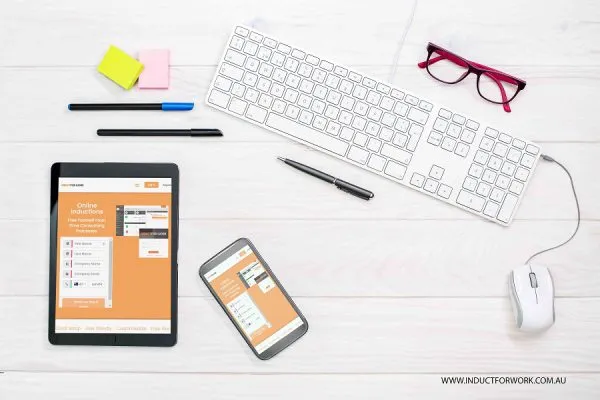The pros and cons of working remotely often boil down to the exact same thing: easy access to all the comforts of home.
But being so close to your bed… your fridge… your pets can be a minefield for the unwary, one filled with lost energy, motivation and productivity. But with these clever tips, you’ll easily strike a balance between your time on the job and the rest and play part of your day.
1. Have a work schedule
Even the very best worker can sometimes find themselves getting off track or procrastinating with their daily work tasks when their favourite things – and people – are but a glance away.
But you wouldn’t slack off in the office, so it’s not right to do it at home. Fortunately, there’s an easy way to ward off temptation, which is to draw up a working schedule. Like the name suggests, this involves planning out your day – whether you do it the morning of, or the night before. Simply look at what you need to achieve, look at how much time you reasonably need for each task, and then make your time allocations.
Also take into account your personal strengths and weaknesses, such as when you are most active, alert and productive, and the amount of work you can handle at once. By doing this, you prioritise key tasks when you’re freshest and plan less interesting jobs for when your energy thresholds are high, which makes for the smartest use of your time. And if you dive in, follow the schedule and work productively, before you know it your to-do list will be all ticked off and the working day will be over.
2. Schedule breaks
Everyone needs to take breaks through their working day, both for physical and mental wellbeing and stamina. After hours of concentrated effort, the reality is that your brain needs to rejuvenate, your system needs to take a deep breath and your stress levels need time to fall.
Your eyes also need a break from the strain of staring at a screen and your body needs to peel itself from the chair you’ve been glued to and work out some of those kinks and aches. As for food – you need to eat some. And not at your desk. It’s more important to have lunch mindfully, rather than gulping it down in between strokes of the keyboard. After all, studies have long shown that rested and well-nourished staff work better and more productively than those who choose to just power on.
So give yourself – and the business – a break (quite literally) and down tools now an again. Your body and brain will thank you for it.
3. Ditch the regular after-hours work
Most employees will happily work a few extra hours here or there to help out in a tight spot or when they simply want to get a job finished. But extra hours should never be a regular event or expectation. And it’s a real risk when employees are remote, because with work always close at hand, complaints about a lack of things to watch on the TV can easily transform into the idea that ‘I might as well do some work instead.’
But don’t give into that thought! A working day that stretches too long only serves to sap your spirit, cut your motivation and tap into the energy you need to work tomorrow. Plus, it’s not expected. And if it is, well it’s time to talk to management about setting realistic expectations. Just because you work from home does not mean you are always available.
So be diligent about logging-off from work and then refocusing on family, friends and other things that fill you with joy and promote relaxation. You’ll thank yourself in the morning.
4. Prepare yourself professionally
We’ve all heard the stories of Zoom meetings that are business attire from the waist up, and track pants from the waist down. But you’ll get much more out of your working day if you treat home like a working environment. So don’t come to your desk in your pyjamas having just rolled out of bed, as that’s where your brain will want to stay. Instead, set an alarm, dive into the shower, get dressed, eat breakfast and make yourself a coffee. Set this up as a pre-work routine and then, when 9am – or your regular starting time – rolls around, you’ll have made the transition out of relaxation mode and be ready for a productive day on the job.
5. Communicate constantly
Working from home can sometimes leave you feeling secluded, even isolated. But it’s important to remember that you’re not an island, even if you’re alone. So be active in engaging with your colleagues, whether it’s an email update on where you’re at with shared tasks, a quick ‘good morning’ recap on a group chat each day or even a weekly lunchtime video call.
Reach out, have conversations, seek help and participate in those online meetings. Feeling connected – even if it’s just through a screen – is a great tool for both mindset and motivation.
6. Listen to good music
The right music is so much more than simply a soundtrack to your working day. It can lift your spirits, provide motivation, pump up energy levels and calm stress. All it takes is just the right song or mixed tape. So make up some playlists to suit different days and needs and pop them on first thing in the morning to help you relax or concentrate as needed. Just avoid anything you’re likely to hear in a beauty salon or day spa. After all, no one needs you nodding off on the job!
7. Remove any and all distractions
Your comfy couch. A chilled bottle of wine. That new-release book which just rocked up at your door. The list of things at home that can capture your attention and destroy your productivity are almost endless. So put paid to distraction by setting up a proper workstation.
Firstly, try to position it away from busy living areas if possible, and facing away from temptations such as the TV. Limit your use of the internet unless it’s directly work-related and make sure you have everything you need close at hand – from a water bottle to pens and a notebook. That way you have no reason to get up and wander and every reason to put your head down and bum up.
Trust us, when your eyes aren’t straying to things you’d much rather be doing, you might be pleasantly surprised at how much you can get done!
Do you have any questions or great tips to share?
Induct for Work – the only online induction system you would need to run online inductions.



